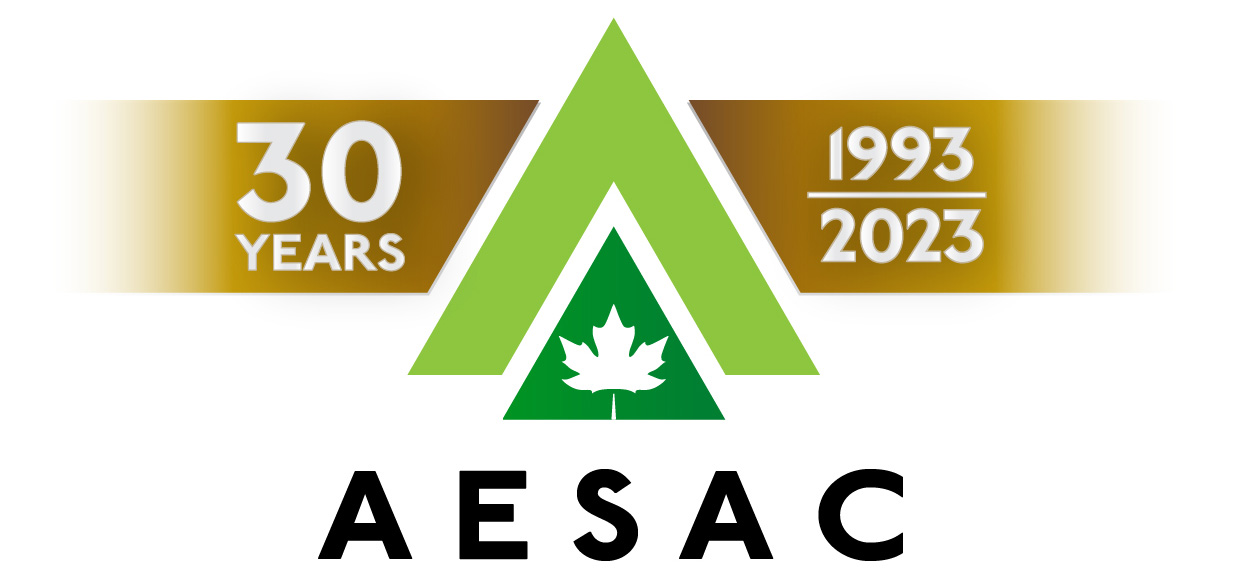- Home
- Training Courses
- Membership
- About Us
- Instructors Blog
- December 2023: All I Want For Christmas
- November 2023: ESA Report Reviews
- October 2023: Can AI Write an ESA Report?
- September 2023: Getting Paid... or Not
- August 2023: Take Me Back...
- July 2023: To Bid or Not To Bid
- June 2023: Selecting a Supplier
- April 2023: Phase 1 Problems, Part 3
- March 2023: Phase 1 Problems, Part 2
- February 2023: Phase 1 Problems, Part 1
- January 2023: Working Outside in Winter
- 2022 Blogs
- 2021 Blogs
- December 2021: Asbestos in your Home
- Sept 2021: Dirty Jars And Other Bad Things… Part 2
- August 2021: Dirty Jars And Other Bad Things… Part 1
- July 2021: How do you want that drawing to look? Part 2
- June 2021: How Did You Want That Drawing To Look? Part 1
- April 2021: So You Need a RSC... Part 2
- March 2021: So You Need a RSC... Part 1
- February 2021: What's In Your Toolbox? Part 2
- January 2021: What's In Your Toolbox? Part 1
- 2020 Blogs
- December 2020: A Day in the Life, Part 2
- November 2020: A Day in the Life, Part 1
- October 2020: Exploring Your Career Path
- September 2020: So You Want To Start Your Own Business - Part 2
- August 2020- So You Want to Start Your Own Business
- June 2020: Effective Communication
- May 2020: Tips For Working From Home
- April 2020: Conducting ESA’s During a Pandemic
- March 2020: It's Not Easy Being Green
- February 2020: Looking Ahead; Bold Predictions for the Next Decade
- January 2020: Looking Back; A Decade in Review
- 2019 Blogs
- 2018 Blogs
- 2017 Blogs
- 2016 Blogs
- 2015 Blogs
- Find an AESAC Member
Menu- Home
- Training Courses
- » Training Courses
- » Webinar Series
- » Calendar of Events
- » Course Registration
- » Course Instructors
- » Testimonials
- Membership
- » Become a Member
- » Certifications
- » Membership Search
- » Update Member Profile
- » Members Only
- » » Member Login
- » » Membership Renewal
- » » Create/Change Password
- » » CESA Certification Application
- About Us
- » About AESAC
- » Course Instructors
- » Contact Us
- Instructors Blog
- » December 2023: All I Want For Christmas
- » November 2023: ESA Report Reviews
- » October 2023: Can AI Write an ESA Report?
- » September 2023: Getting Paid... or Not
- » August 2023: Take Me Back...
- » July 2023: To Bid or Not To Bid
- » June 2023: Selecting a Supplier
- » April 2023: Phase 1 Problems, Part 3
- » March 2023: Phase 1 Problems, Part 2
- » February 2023: Phase 1 Problems, Part 1
- » January 2023: Working Outside in Winter
- » 2022 Blogs
- » » December 2022: Advice To My Younger Self
- » » October 2022: Pre-Purchase Due Diligence
- » » Sept 2022: Words Matter
- » » July 2022: Let Us Come To You
- » » April 2022: Due Diligence
- » » March 2022: Time Management
- » » February 2022: Spinning Augers... Part 2
- » » January 2022: Spinning Augers... Part 1
- » 2021 Blogs
- » » December 2021: Asbestos in your Home
- » » Sept 2021: Dirty Jars And Other Bad Things… Part 2
- » » August 2021: Dirty Jars And Other Bad Things… Part 1
- » » July 2021: How do you want that drawing to look? Part 2
- » » June 2021: How Did You Want That Drawing To Look? Part 1
- » » April 2021: So You Need a RSC... Part 2
- » » March 2021: So You Need a RSC... Part 1
- » » February 2021: What's In Your Toolbox? Part 2
- » » January 2021: What's In Your Toolbox? Part 1
- » 2020 Blogs
- » » December 2020: A Day in the Life, Part 2
- » » November 2020: A Day in the Life, Part 1
- » » October 2020: Exploring Your Career Path
- » » September 2020: So You Want To Start Your Own Business - Part 2
- » » August 2020- So You Want to Start Your Own Business
- » » June 2020: Effective Communication
- » » May 2020: Tips For Working From Home
- » » April 2020: Conducting ESA’s During a Pandemic
- » » March 2020: It's Not Easy Being Green
- » » February 2020: Looking Ahead; Bold Predictions for the Next Decade
- » » January 2020: Looking Back; A Decade in Review
- » 2019 Blogs
- » » November 2019
- » » September 2019
- » » August 2019
- » » July 2019
- » » May 2019
- » » March 2019
- » » February 2019
- » » January 2019
- » 2018 Blogs
- » » November 2018
- » » October 2018
- » » September 2018
- » » August 2018
- » » July 2018
- » » June 2018
- » » May 2018
- » » March 2018
- » » February 2018
- » » January 2018
- » 2017 Blogs
- » » April 2017
- » » June 2017
- » » August 2017
- » » September 2017
- » » December 2017
- » 2016 Blogs
- » » October 2016
- » » September 2016
- » » August 2016
- » » July 2016
- » » June 2016
- » » March 2016
- » » January 2016
- » » December 2016
- » » November 2016
- » 2015 Blogs
- » » April 2015
- » » July 2015
- » » September 2015
- » » October 2015
- » » December 2015
- Find an AESAC Member
In my last blog I discussed job hunting tips for students and young professionals starting their career in the environmental industry. With some research, hard work, lots of perseverance and some luck, you’ve finally landed an interview with a prospective employer. Here are a few tips on preparing for this next big step. Thanks for the valuable contributions from colleagues, including my mentors and mentees.
Research:
Just like successful job hunting you have to thoroughly research your prospective employer. You need to understand the company; including, but not limited to their services, markets, clients, projects, staffing, their history and future. The better you understand the company, the better you can convince them that you are the perfect fit they have been looking for. Specifically explore areas of interest you have in common with the firm and their staff that you can leverage and expand on in the interview.Practice:
Interviews can be very stressful, and don’t always display your attributes, especially if you are nervous, or have difficulty responding to tough questions while under pressure. Try to get those nervous jitters out of your system by practicing interview techniques. You can do mock up interviews with friends or classmates (family members may not be the best due to inherent bias), or practice in front of a mirror; you could even make a video to better evaluate body language, posture and tone. Early in their career, one colleague went to many interviews for jobs they didn’t expect to get (unrelated fields, recruiters, jobs they knew they wouldn’t land) just to practice answering difficult questions in a tense environment. Constructively critique these practice sessions, and use these lessons to improve all aspects of your presentation.Prepare your ‘Elevator Speech’:
Whether you are in a formal interview, or just happen to meet a potential employer while networking; you should have a suitable ‘Elevator Speech’ ready to go. Simply put, this is a very brief summary of who and what you are. It should outline your strengths, but more importantly let the listener know what you are good at and passionate about. It should demonstrate your self-confidence without bragging. You may want to have several variations depending on the target audience. Create a unique and personal elevator speech; then practice it, repeat it and fine tune it until it becomes second nature. It should be concise and succinct - less than a minute in length, any longer than that and you will likely lose the interest or attention of your audience.Questions and Answers:
With the research and practice you should be able to prepare good answers for the interview questions. Concentrate on your strengths and the skills and expertise you can bring to the employer. Recognize, but try to minimize your weaknesses. Don’t be scared or intimidated - know what you want in advance and how to ask for it; which is easier said than done when, especially early on in your career path. Lastly, be prepared with some well researched, company or project-specific questions of your own for the interview (more on that topic next month).In my next blog I will discuss additional strategies to implement these ideas, and conduct a successful job interview.
Bill Leedham, P. Geo., CESABill is the Head Instructor and Course Developer for the Associated Environmental Site Assessors of Canada (www.aesac.ca); and the founder and President of Down 2 Earth Environmental Services Inc. You can contact Bill at info@down2earthenvironmental.ca
Training Courses
Membership
About Us
Contact UsCopyright (c) 2024 Associated Environmental Site Assessors of Canada; AESAC Inc.



